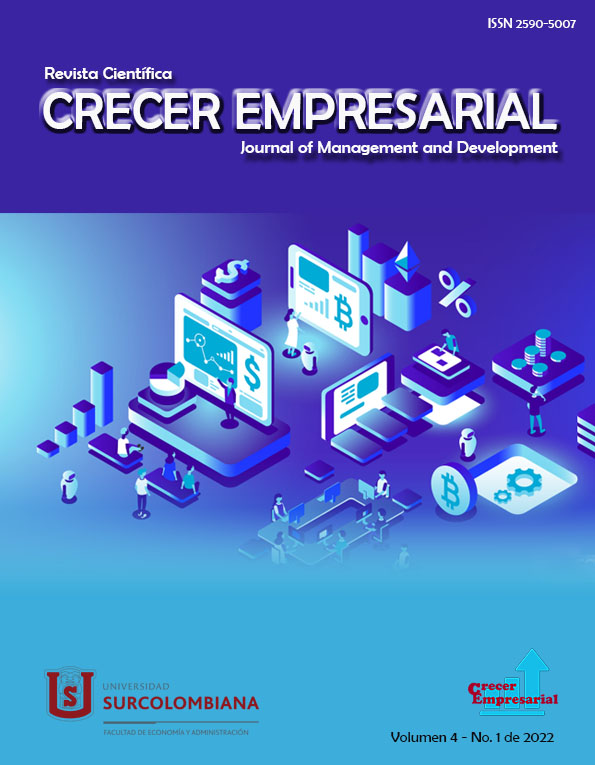Post-pandemic, an opportunity to improve.
##plugins.themes.bootstrap3.article.main##
It could be said that the world is going through a restart-type state, due to all the stagnation and adaptability that humanity had to face in the pandemic, more than a public health problem, it affected the other dimensions of life as we knew it. In fact, Schwab, K. and Malleret, T. (2020) regarding the restart, analyze five interdependent macro categories to understand the current situation in the world and how they could evolve, these are five categories: economic restart, social restart, geopolitical restart, environmental restart and technological restart.
And there is an atmosphere of optimism in this regard, because since 2021, some societies have desisted or reduced the restrictions to avoid the spread of Covid-19. Despite the delta variant spreading across Europe, Denmark was the first country in the European Union to end restrictions and return to life before the pandemic, in the Netherlands people can enjoy parties without social distancing and in Sweden they ended in September with the restrictions and recommendations to work at home (Ghaedi, 2021).
In societies with reliable governance and strong health systems, restarting is more affordable, according to Ghaedi (2021), Sweden, the Netherlands, and Denmark have a high level of trust in authorities, good hospital capacity, and high vaccination rates. Similarly, this year, Austria and Germany began to abandon certain restrictions due to the reduction in cases of Covid-19 (Amaya Porras, 2022).
On the other hand, Spanish CNN (2022) reports that countries such as Finland, Norway, Denmark, Sweden, Spain lifted and/or reduced restrictions to prevent the spread of Covid-19; Also in the United States, states such as Connecticut, Delaware, New Jersey, California and Oregon desisted from the mandatory use of masks.
Obviously, in each society the contagion circulates in different ways. For this reason, the WHO suggests following recommendations according to each situation, including mass vaccination, the use of masks, physical distancing, improving ventilation systems, carrying out mass tests to detect covid-19 and tracking hospitalization rates ( CNN Spanish, 2022).
With these processes of trying to restart activities, reflections, studies, and analyzes emerge around the social and individual learning that the pandemic leaves behind, as well as the possible lines of action or strategies of action in the new normality.
For example, Atkinson (2022) in his reflection on the post-pandemic situation, shares the following 10 lessons from Covid-19:
Lesson 1
People proved adaptable
Lesson 6
We are becoming more insular
Lesson 2
Mental health is as important as physical health
Lesson 7
Maintaining public trust is difficult
Lesson 3
Consumer wants are unpredictable
Lesson 8
State expectations have changed
Lesson 4
Inequalities are widening
Lesson 9
Fear and risk are being redefined
Lesson 5
The “empty planet” scenario is now more likely
Lesson 10
A sustainable future requires leadership
These lessons are related to the way in which the human being had to learn to face the situation at the individual level and as part of a society, it also makes it clear that he evidenced the problems of inequity
and inequality in the distribution of resources and in access to opportunities. It is clear that adequate leadership is essential if a sustainable and egalitarian society is to be desired in the future.
As guidelines or action strategies to follow, as an example, are the considerations of the director of the World Economic Forum. Three basic considerations can serve as a guide to follow, first, the leaders of the public and private sectors must have a broad vision of the resilience agenda, since this time can be an opportunity to re-imagine and reset the world (Schwab, 2022). The second consideration of Schwab (2022) is that the strategies and structures must be designed to be flexible and fast, because when circumstances change, the responses of companies and the government must also change in terms of uncertainty, adaptability and flexibility. And, the third consideration explains that beyond developing resilience in business and the economy, public and private leaders must also develop social resilience, since both companies and governments must contribute to truly improving the lives of historically marginalized populations (Schwab, 2022).
Regardless of the lessons and strategies to follow in the post-pandemic, it is relevant to motivate the spirit of resilience, become aware of the environment in terms of empathy, and develop skills to adapt to change.
Downloads
##plugins.themes.bootstrap3.article.details##
Amaya Porras, A. (2022). Austria y Alemania se suman a los países que relajan las restricciones por el Covid-19. Sesión Europa, France 24. Link: https://www.france24.com/es/europa/20220217-alemania-austria-final-restricciones-covid
CNN ESPAÑOL (2022). Varios lugares levantan restricciones por covid-19: ¿estamos entrando a una nueva era de la pandemia?. Informe en sesión de Salud, Coronavirus. Con información de Jacqueline Howard, Travis Caldwell, Holly Yan, Rob Picheta y Tasnim Ahmed de CNN y Carolina Melo de CNN en Español. Link: https://cnnespanol.cnn.com/2022/02/08/restricciones-covid19-nueva-era-pandemia-orix/
Atkinson, S. (2022). 10 lecciones de COVID-19 que cambiarán el futuro pospandemia. Artículo publicado en la sesión Covid-19, World Economic Forum -WEF-. Link: https://www.weforum.org/agenda/2022/01/ten-covid19-lessons-from-the-pandemic-ipsos/
Schwab, K. (2022). 3 claves para una recuperación post-pandemia resiliente. Artículo publicado en la sesión Covid-19, World Economic Forum -WEF-. Link: https://www.weforum.org/agenda/2022/02/3-keys-to-a-resilient-post-pandemic-recovery/
Schwab, K. y Malleret, T. (2020). Covid 19: el gran reinicio. Libro digital ISBN 978-2-940631-14-8. Foro Económico Mundial. Link: https://drive.google.com/file/d/1sa6FqiCidNl7SokhUhqmGmh_YuFTTL7c/view



